Search titles
Displaying results 101 to 110 of 179.
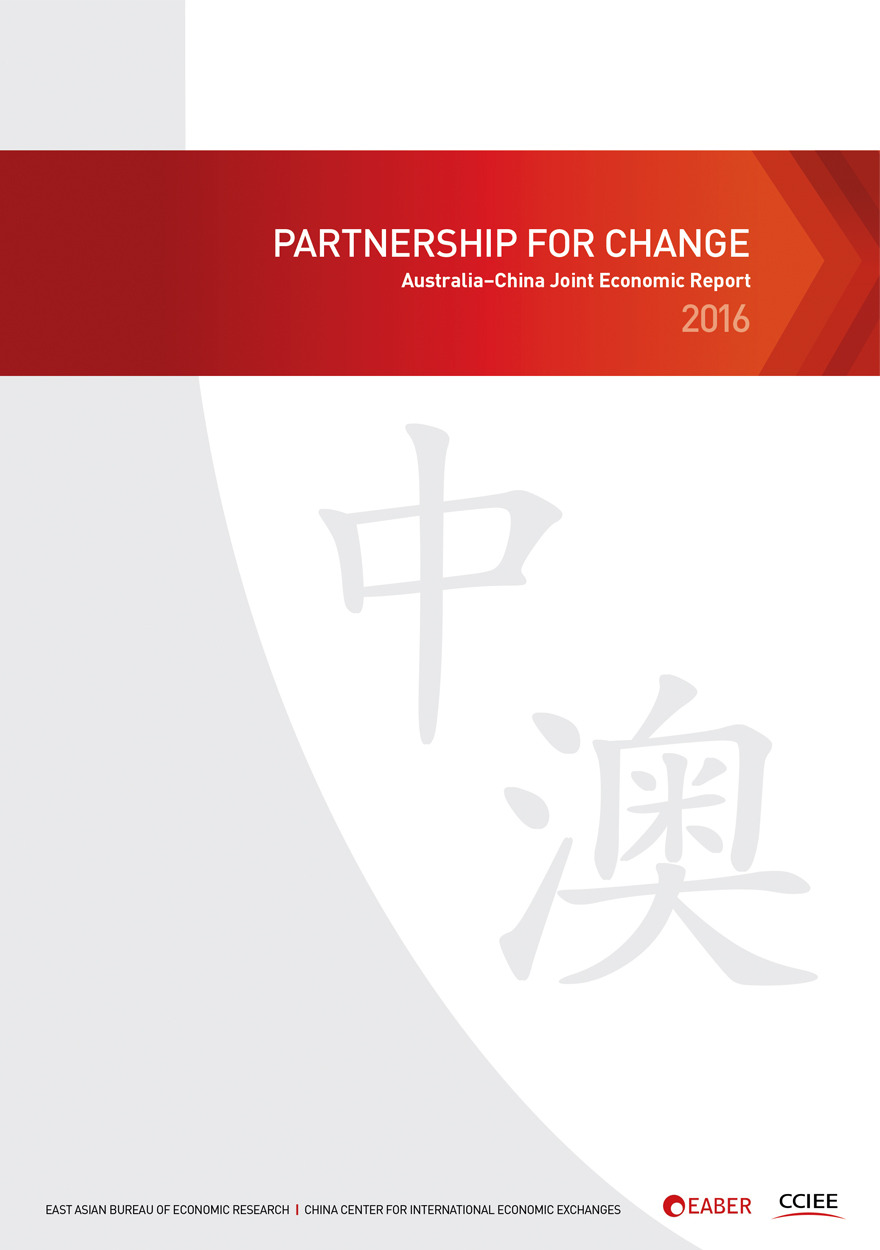
Partnership for Change »
Australia–China Joint Economic Report
Authored by: East Asian Bureau of Economic Research, China Center for International Economic Exchanges
Publication date: August 2016
The Australia–China Joint Economic Report is the first major independent joint study of the bilateral relationship and has the blessing of both national governments. The Report is an academic policy study by leading researchers in both Australia and China. It draws policy conclusions to guide the development of bilateral economic relations that include an Australia–China Comprehensive Strategic Partnership for Change, an Australia–China Commission, and an Australia–China Basic Treaty of Cooperation.
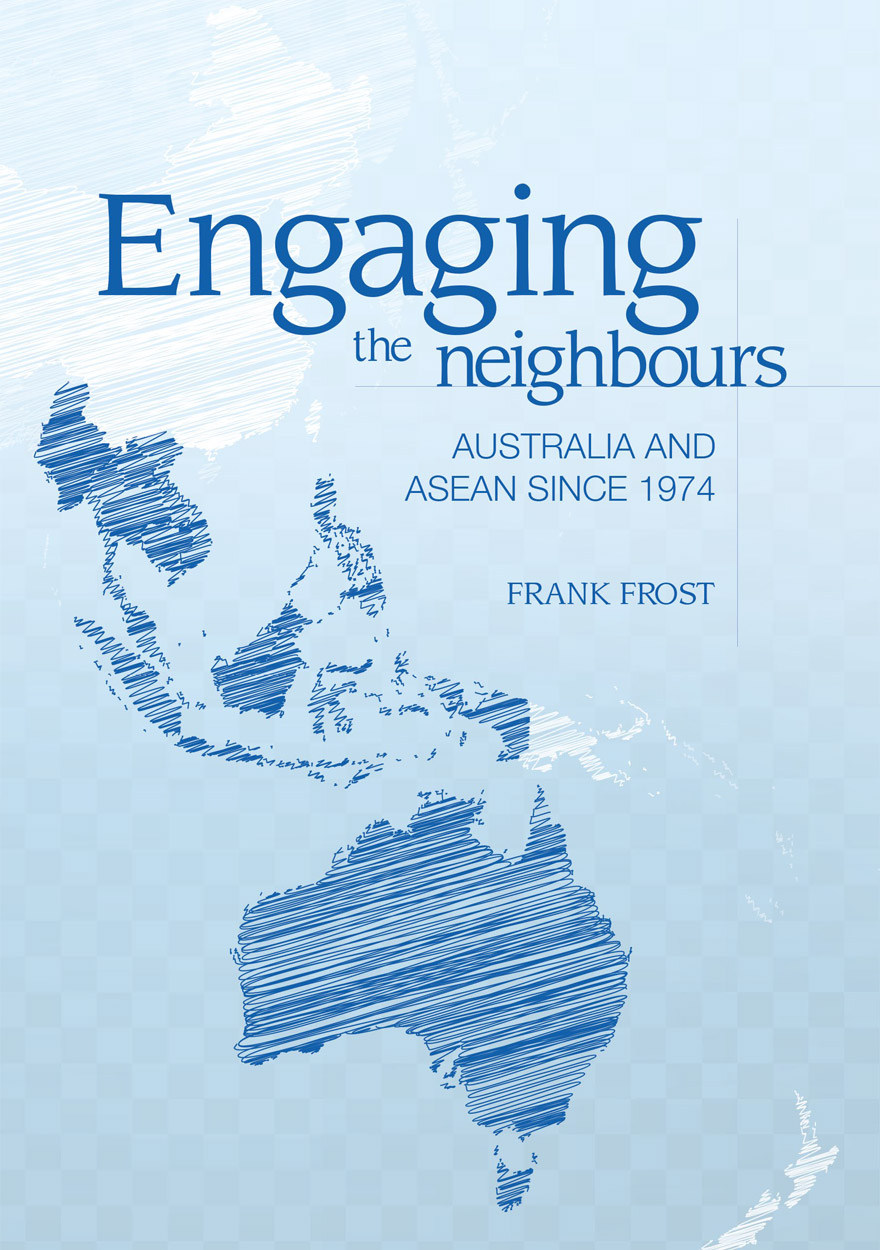
Engaging the neighbours »
Australia and ASEAN since 1974
Authored by: Frank Frost
Publication date: July 2016
From modest beginnings in 1967, the Association of Southeast Asian Nations (ASEAN) has become the premier regional institution in Southeast Asia. The 10 members are pursuing cooperation to develop the ‘ASEAN Community’ and also sponsor wider dialogues that involve the major powers. Australia has been interested in ASEAN since its inauguration and was the first country to establish a multilateral link with the Association, in 1974. Australia and ASEAN have subsequently engaged and cooperated on many issues of mutual concern, including efforts to secure an agreement to resolve the Cambodia conflict (signed in 1991), the initiation of the Asia-Pacific Economic Cooperation grouping (1989) and the ASEAN Regional Forum (1994), the conclusion of the ASEAN–Australia–New Zealand Free Trade Agreement (signed in 2008) and the development of the East Asia Summit (from 2005).
This book provides the first available detailed history of the evolution of Australia’s interactions with ASEAN. It assesses the origins and phases of development of Australia’s relations with ASEAN; the role ASEAN has played in Australian foreign policy since the 1970s; the ways in which the two sides have collaborated, and at times disagreed, in the pursuit of regional stability and security; and the key factors that will influence the relationship as it moves into its fifth decade.
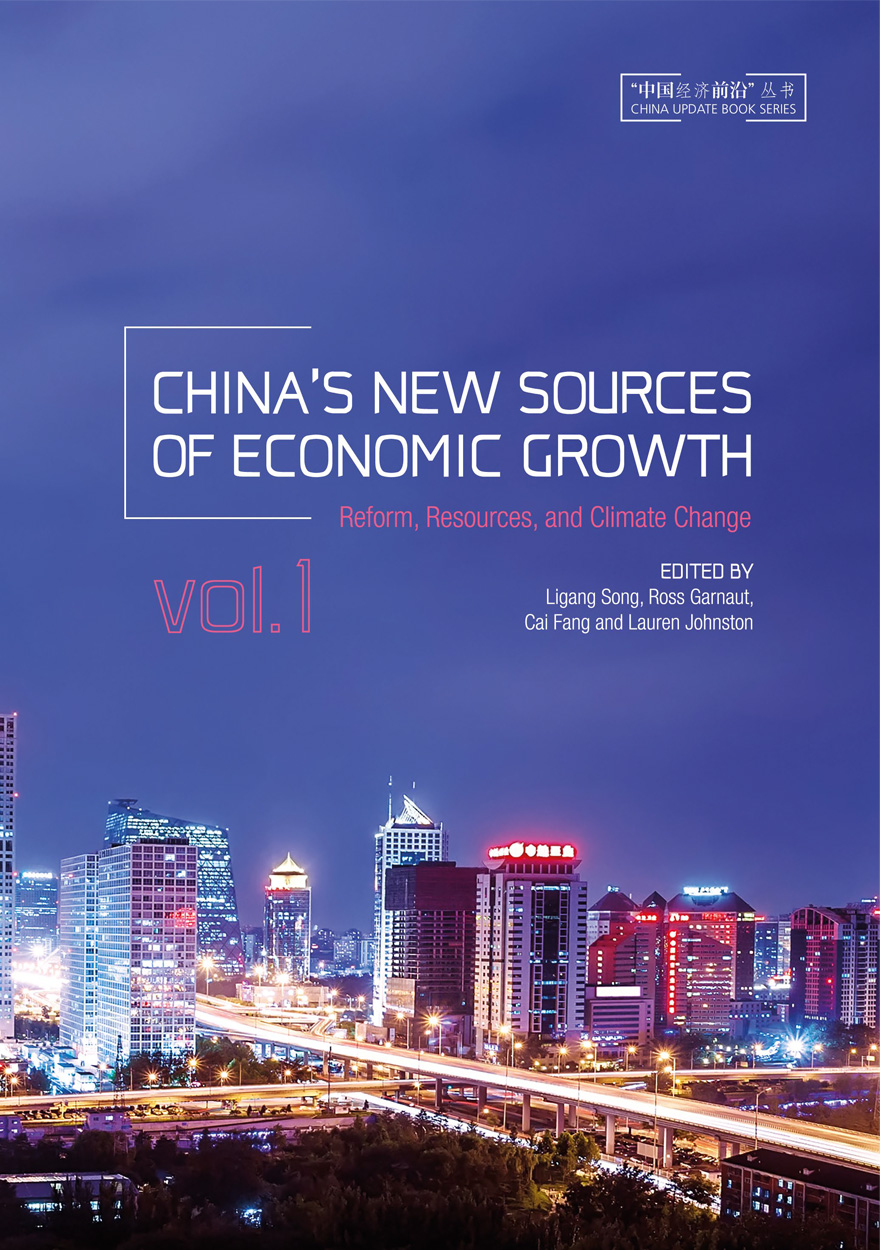
China's New Sources of Economic Growth: Vol. 1 »
Reform, Resources and Climate Change
Edited by: Ligang Song, Ross Garnaut, Cai Fang, Lauren Johnston
Publication date: July 2016
China’s change to a new model of growth, now called the ‘new normal’, was always going to be hard. Events over the past year show how hard it is. The attempts to moderate the extremes of high investment and low consumption, the correction of overcapacity in the heavy industries that were the mainstays of the old model of growth, the hauling in of the immense debt hangover from the fiscal and monetary expansion that pulled China out of the Great Crash of 2008 would all have been hard at any time. They are harder when changes in economic policy and structure coincide with stagnation in global trade and rising protectionist sentiment in developed countries, extraordinarily rapid demographic change and recognition of the urgency of easing the environmental damage from the old model. China’s economy has slowed and there are worries that the authorities will not be able to contain the slowdown within preferred limits. This year’s Update explores the challenge of the slowdown in growth and the change in economic structure. Leading experts on China’s economy and environment review change within China’s new model of growth, and its interaction with ageing, environmental pressure, new patterns of urbanisation, and debt problems at different levels of government. It illuminates some new developments in China’s economy, including the transformational potential of internet banking, and the dynamics of financial market instability. China’s economic development since 1978 is full of exciting change, and this year’s China Update is again the way to know it as it is happening
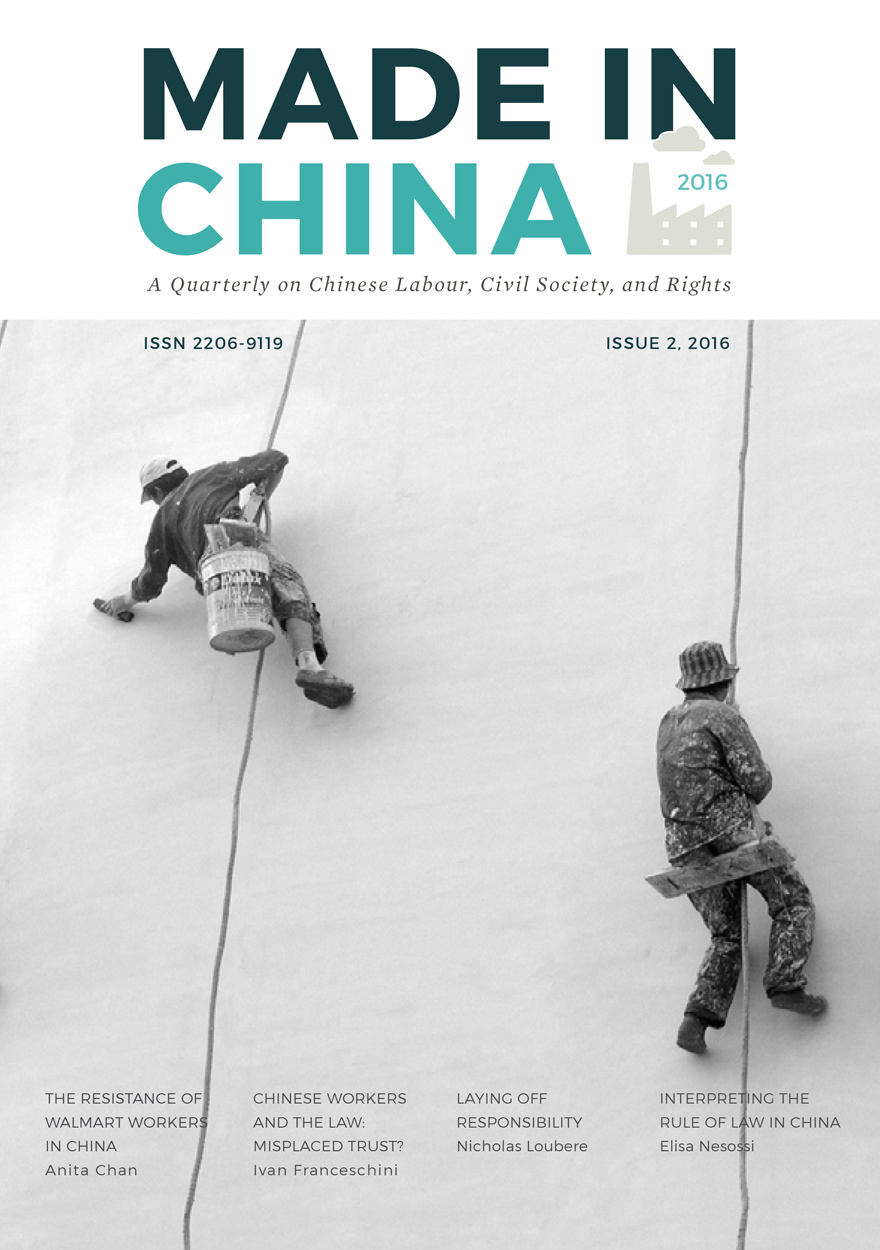
Made in China Journal: Volume 1, Issue 2, 2016 »
Edited by: Ivan Franceschini, Kevin Lin
Publication date: June 2016
Besides the usual summaries of recent events in China, in this issue you will find articles on the struggles of Walmart workers in China, the limits of the ‘rights awakening’ of Chinese workers, and the political implications of resorting to microcredit to alleviate unemployment. Included is also a Forum in which prominent legal experts put the concept of the ‘rule of law’ in China in a wider historical and political perspective and a compendium of the new Law on the Management of Foreign NGOs’ Activities within Mainland China.
Download for free
Not available for purchase
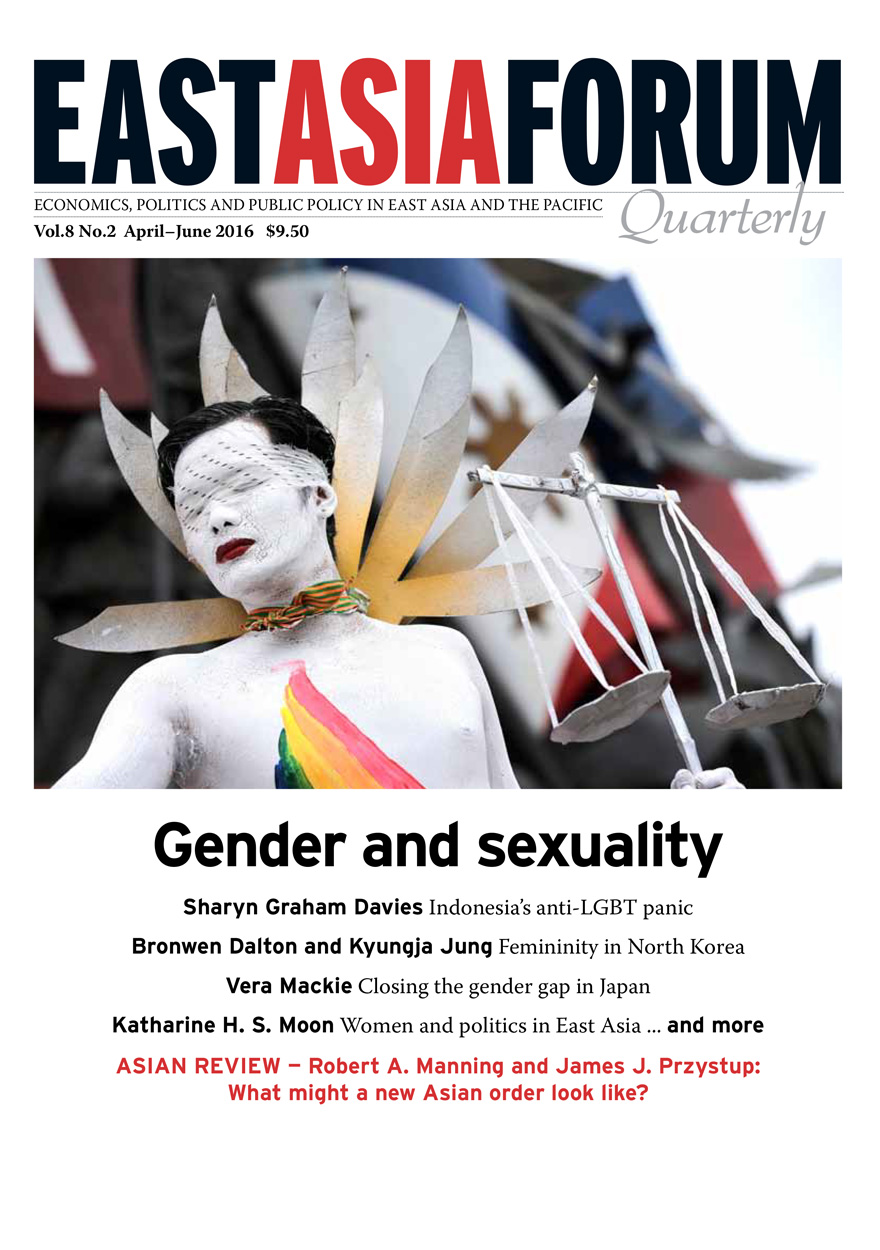
East Asia Forum Quarterly: Volume 8, Number 2, 2016 »
Publication date: June 2016
East Asia Forum Quarterly grew out of East Asia Forum (EAF) online, which has developed a reputation for providing a platform for the best in Asian analysis, research and policy comment on the Asia Pacific region in world affairs. EAFQ aims to provide a further window onto research in the leading research institutes in Asia and to provide expert comment on current developments within the region. The East Asia Forum Quarterly, like East Asia Forum online, is an initiative of the East Asia Forum (EAF) and its host organisation, the East Asian Bureau of Economic Research (EABER) in the Crawford School of Economics and Government in the College of Asia & the Pacific at The Australian National University.
Download for free
Not available for purchase

Geography, Power, Strategy and Defence Policy »
Essays in Honour of Paul Dibb
Edited by: Desmond Ball, Sheryn Lee
Publication date: May 2016
Paul Dibb AM has had an extraordinary career. He enjoys an international scholarly reputation of the highest order, while at the same time he has done much distinguished public service. He was a pioneer in moving back and forth between posts in government departments, notably the Department of Defence, and academia. He began as a student of Soviet economic geography, and then spent nearly two decades in Australian Defence intelligence, including service as Head of the National Assessments Staff (NAS) in the Joint Intelligence Organisation (JIO) from 1974 to 1978, Deputy Director of JIO in 1978–80, Director of JIO in 1986–88, and Deputy Secretary of Defence (Strategy and Intelligence) in 1988–91, before becoming a Professor in the Strategic and Defence Studies Centre (SDSC) at The Australian National University (where he is now an Emeritus Professor). He has been quite happy to engage in vigorous public debate about important and controversial strategic and defence issues, giving him a high public profile.
The contributors include two former Chancellors of ANU, one a former Minister of Defence, and the other a former Secretary of the Department of Defence, a former Chief of the Defence Force (CDF), and other former senior officials, as well as academic specialists in geography, international relations, and strategic and defence studies.
‘This would be a high-quality set of essays for any edited volume, but for a festschrift – a genre that sometimes generates uneven collections – this is an exceptional assembly. The individual pieces are very good; together, they have coherence and power.’
– Professor Ian Hall, Professor of International Relations, Griffith University
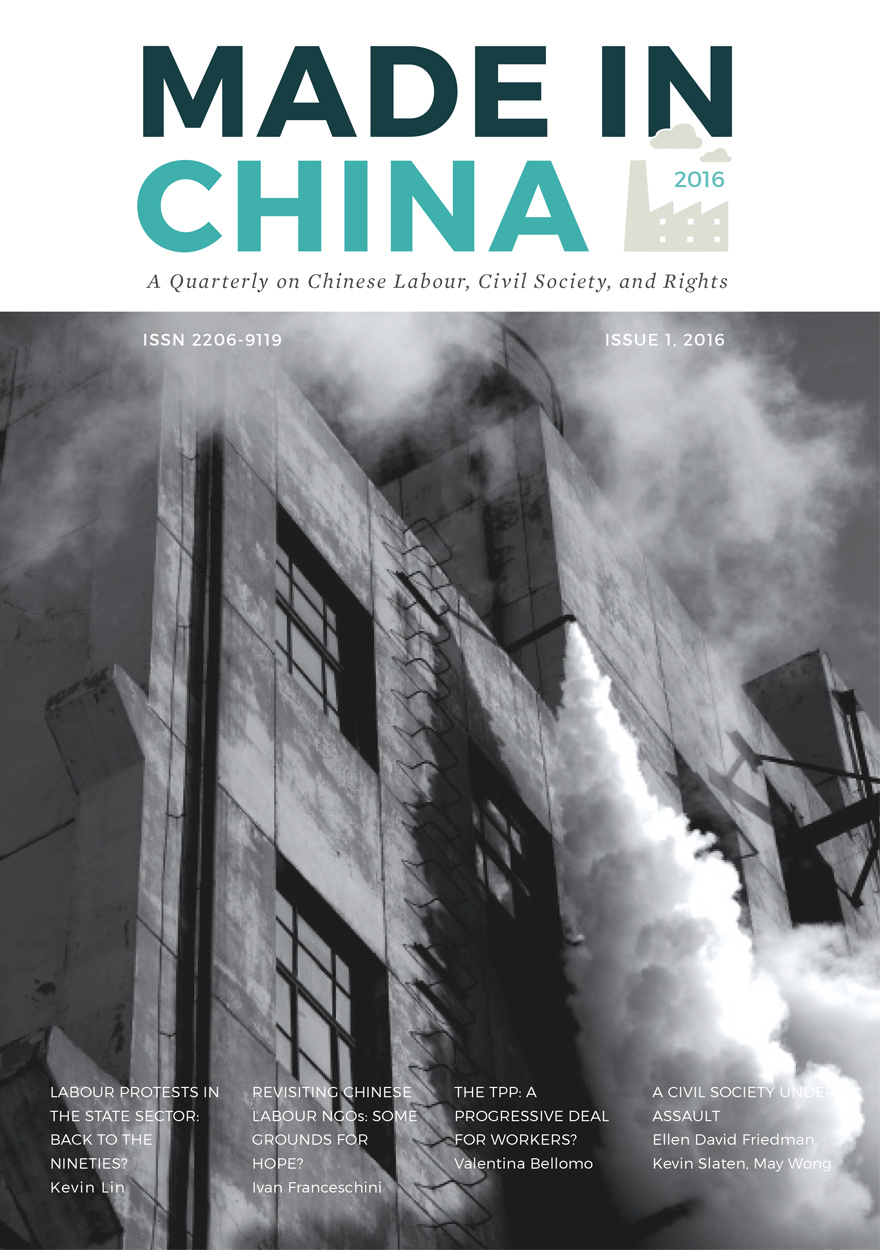
Made in China Journal: Volume 1, Issue 1, 2016 »
Edited by: Ivan Franceschini, Kevin Lin
Publication date: March 2016
In this first issue, you will find summaries of recent events that have taken place in China, as well as a series of columns on specific topics, such as the recent wave of protests in the Chinese state sector and the expected impact of the Trans-Pacific Partnership on labour rights. We devote the core of the first issue to the plight of Chinese labour NGOs, contextualising it through a debate between three prominent international labour experts. Finally, we celebrate the award of the prestigious Joseph Levenson Prize to Luigi Tomba, a long-standing researcher of Chinese labour.
Download for free
Not available for purchase
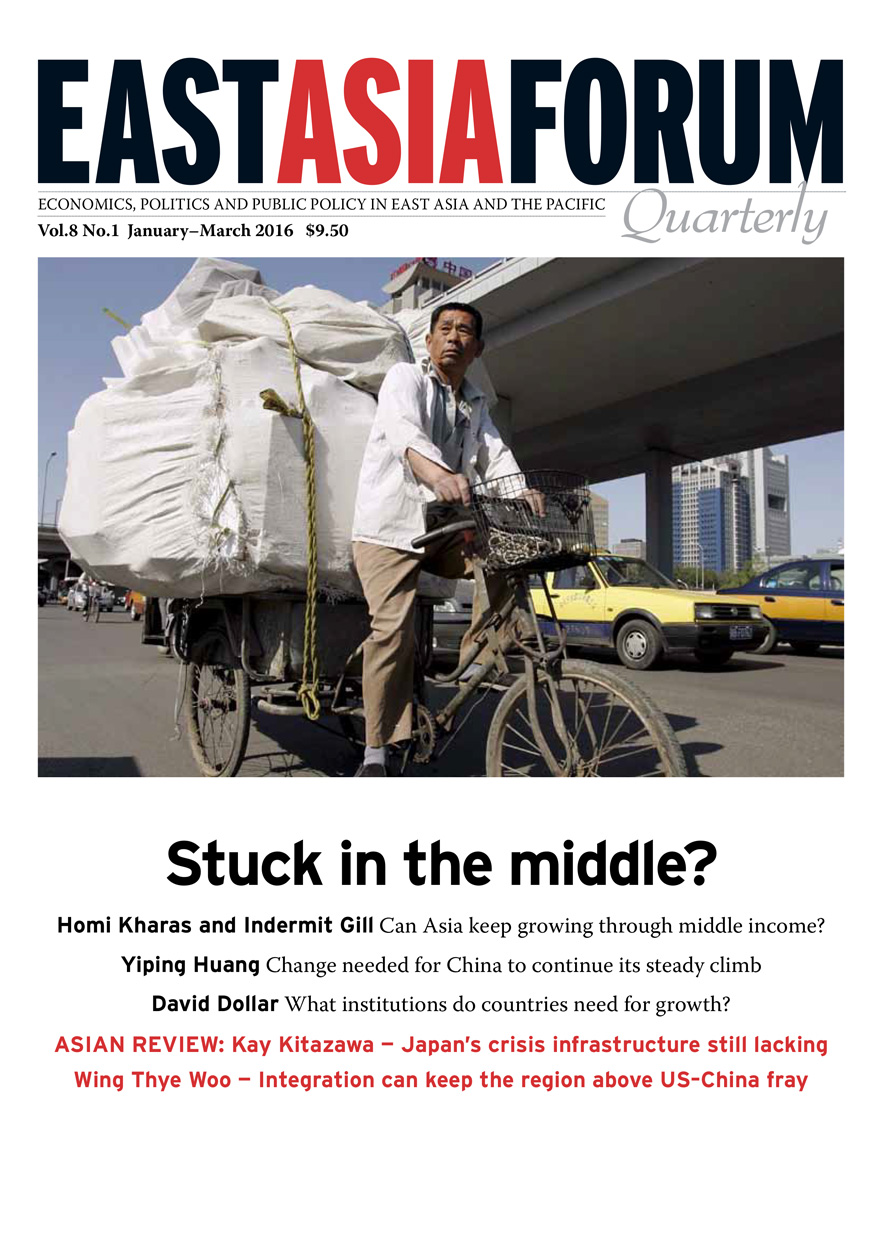
East Asia Forum Quarterly: Volume 8, Number 1, 2016 »
Publication date: March 2016
East Asia Forum Quarterly grew out of East Asia Forum (EAF) online, which has developed a reputation for providing a platform for the best in Asian analysis, research and policy comment on the Asia Pacific region in world affairs. EAFQ aims to provide a further window onto research in the leading research institutes in Asia and to provide expert comment on current developments within the region. The East Asia Forum Quarterly, like East Asia Forum online, is an initiative of the East Asia Forum (EAF) and its host organisation, the East Asian Bureau of Economic Research (EABER) in the Crawford School of Economics and Government in the College of Asia & the Pacific at The Australian National University.
Download for free
Not available for purchase
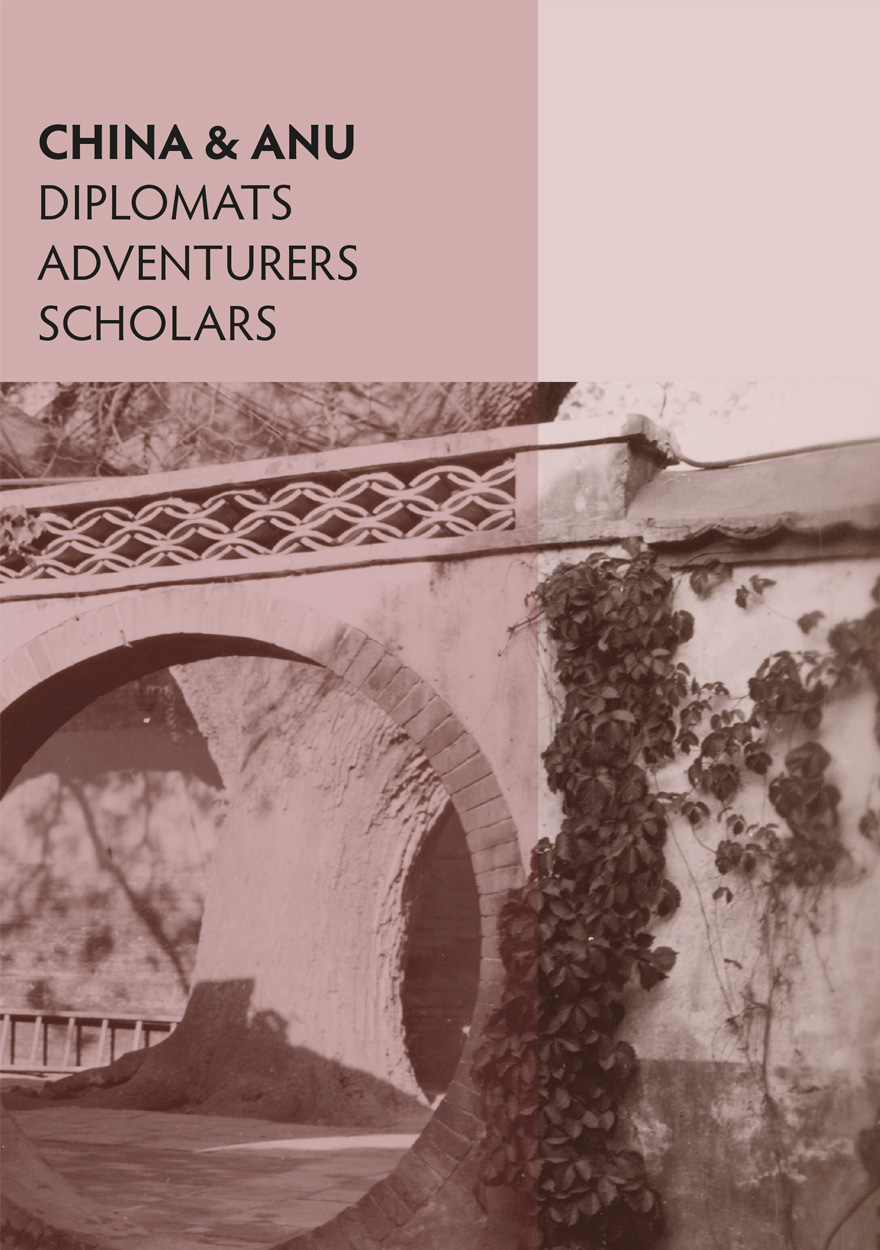
China & ANU »
Diplomats, adventurers, scholars
Authored by: William Sima
Publication date: December 2015
The Pacific War and its aftermath radically transformed Australian perceptions of what was then called the ‘Near North’. Many recognised that in the postwar world Australia’s strategic interests and economic fortunes called for a new understanding of Asia and the Pacific. China loomed large in these calculations.
Based on extensive research and featuring rare archival documents and photographs, China & ANU introduces the diplomats, adventurers and scholars who contributed to Australia’s engagement with China, the ‘Chinese Commonwealth’ and our region from the 1940s-1950s. In particular, this book focusses on the interconnection between Australia’s first diplomat-scholars in China and the founding of Chinese Studies at the newly established Australian National University.
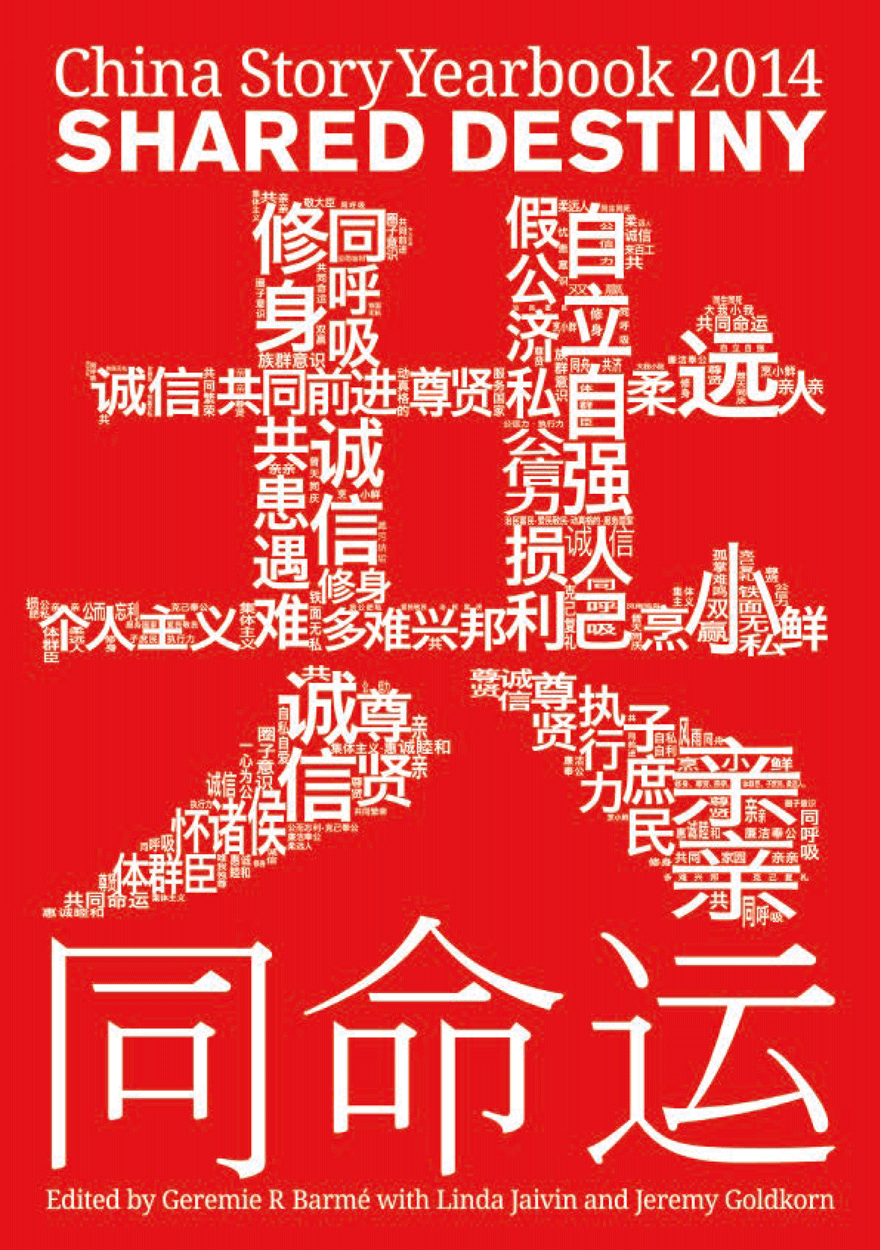
Shared Destiny »
Publication date: November 2015
Humanity as never before shares a common destiny, whether it be in terms of the resources of the planet, the global environment, economic integration, or the movement of peoples, ideas, cultures. For better or worse humankind is a Community of Shared Destiny 命运共同体.
The People’s Republic of China under the leadership of the Chinese Communist Party and its ‘Chairman of Everything’, Xi Jinping, has declared that it shares in the destiny of the countries of the Asia and Pacific region, as well as of nations that are part of an intertwined national self-interest. The Party, according to Marxist-Leninist-Maoist theory, is the vanguard of progressive social forces; it cleaves to the concept of shared destiny and its historical role in shaping that destiny. Since its early days nearly a century ago it has emphasised the collective over the individual, the end rather than the means. It addresses majority opinion while guiding and moulding the agenda both for today, and for the future.
Chapter notes are available to view online.



